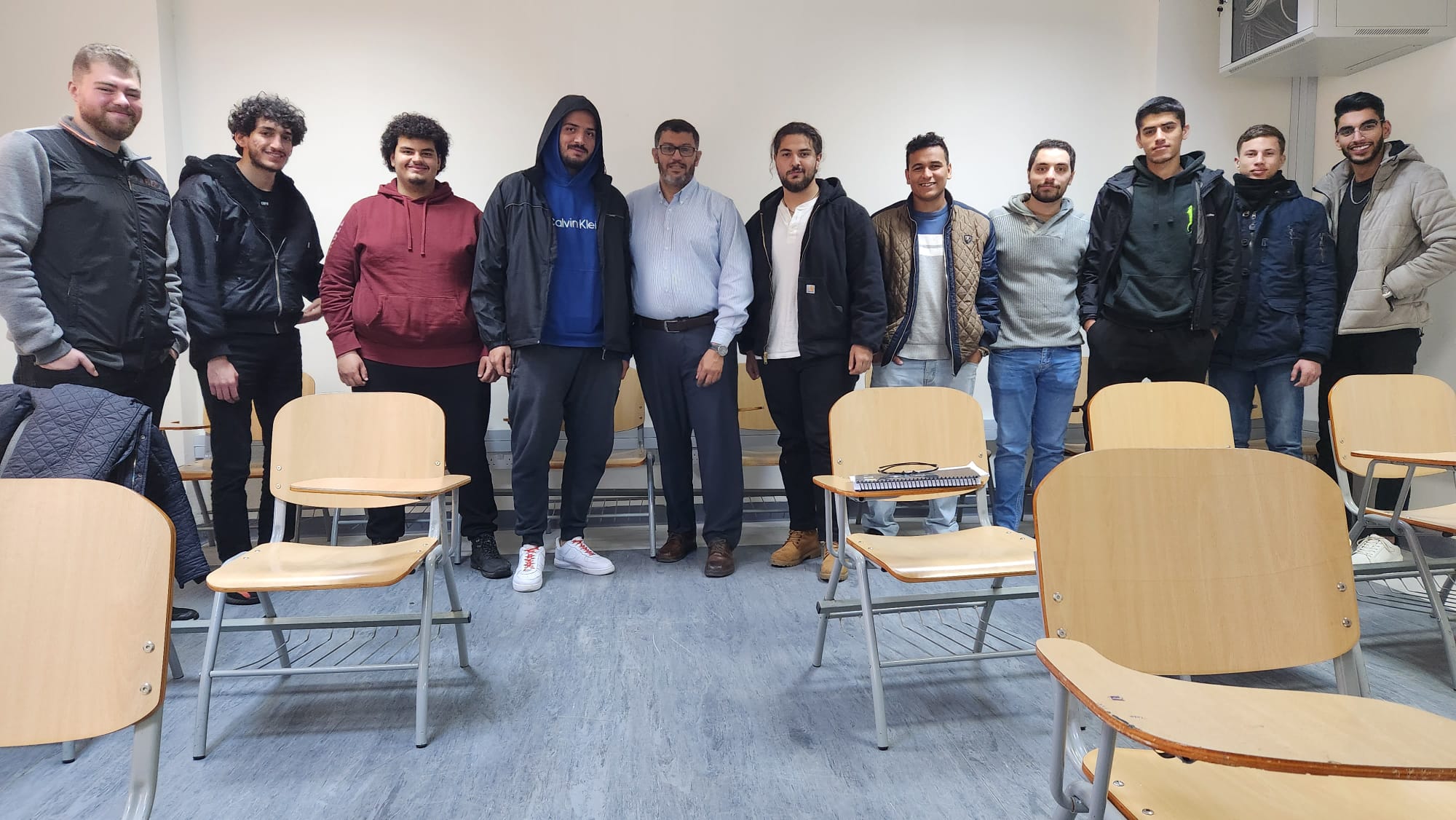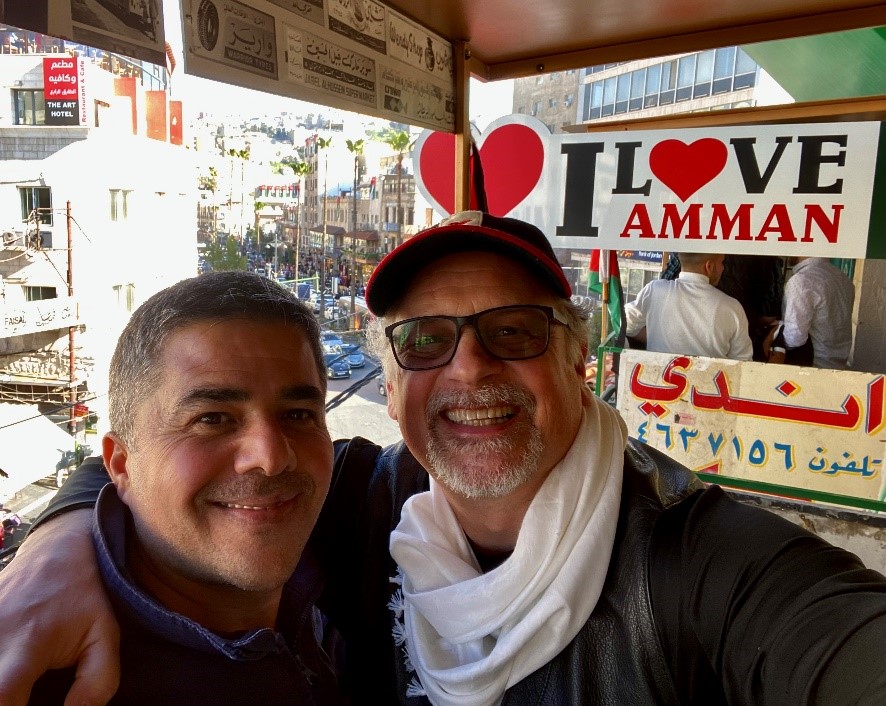All Disciplines
Jordan
Number of recipients
In addition to being a prestigious academic exchange program, the Fulbright Program is designed to expand and strengthen relationships between the people of the United States and citizens of other nations and to promote international understanding and cooperation. To support this mission, Fulbright Scholars may be asked to give public talks, mentor students, and otherwise engage with the host community, in addition to their primary activities.
Host institutions welcome scholars to teach undergraduate or graduate level courses, conduct research, carry out a combination of teaching and research activities, or conduct seminars or professional projects.
Researchers are encouraged to present occasional lectures at institutions throughout Jordan. Scholars on a teaching award will be expected to teach two to three classes per semester. Scholars on a teaching and research award will have a ratio of 60% teaching and 40% research.
In addition to being a prestigious academic exchange program, the Fulbright Program is designed to strengthen relationships between the people of the United States and citizens of other nations. It also aims to promote international understanding and cooperation. To support this mission, Fulbright Scholars will be asked to give public talks, mentor students and otherwise engage with the host community, in addition to their primary activities.
Any appropriate Jordanian university or arts institution. All host institution affiliations will be confirmed by the Jordanian-American Commission for Educational Exchange (JACEE), also known as Fulbright Jordan. Accredited and registered host institutional affiliates outside of public or private Jordanian universities or arts institutions will be accepted on a case-by-case basis, subject to review by JACEE.
Three to ten months
The academic year in Jordan is September through June. Grants may begin any time after August 1, 2025, but must be completed by September 30, 2026. To facilitate university placements, it is recommended that Grantees start in September. Grantees with September start dates are expected to arrive in Jordan for an in-country orientation, generally scheduled during the first week of September. Grantees with other start dates will receive an orientation program upon arrival. The academic calendar will be adjusted according to Islamic and national holidays.
Projects are sought in all disciplines.
During their grant period, Fulbright U.S. Scholars in the Middle East and North Africa region may apply for a short-term regional travel grant (three to fourteen days) for participation in a variety of activities including faculty and student lectures, graduate or faculty seminars, curriculum development, public lectures, panel presentations, needs assessment, conferences, or some combination thereof.
All applicants must meet the Program eligibility requirements (click to review the requirements).
A letter of invitation is strongly preferred, but not required. Host institution affiliations will be confirmed by the Binational Fulbright Commission in Jordan, but applicants are highly encouraged to indicate a preference and, if possible, submit a letter of invitation as part of the application.
All teaching will be in English unless otherwise specified by the host institution. For research grants, Arabic language proficiency sufficient to complete the research project is required; applicants must complete the language proficiency evaluation. For applicants without Arabic or other applicable language proficiency, feasibility of conducting research in English must be demonstrated in the proposal.
Scholars (Teaching, Teaching/Research or Research) affiliated with Jordanian public universities must provide a scanned copy of their Ph.D. diploma or other terminal degree. In some instances, scanned copies of grantee's Bachelor's and Master's diplomas may be requested. Preference will be given to candidates with at least three years of postdoctoral experience.
You may be asked to participate in an interview as part of the in-country selection process.
- Teaching or Teaching/Research grants: $2,750-$3,000 per month, depending on academic rank.
- Research-only grants: $2,350 per month.
- Monthly Maintenance Allowance (MMA): $2,000 per month or the equivalent in Jordanian dinars. Includes housing and associated living costs.
Grantees will receive a one-time payment of $5,560 for round-trip airfare, excess baggage, visa fees, in-transit costs, temporary hotel costs, local transportation in the U.S. or Jordan, and other miscellaneous costs associated with relocation from the U.S. to Jordan and within Jordan. An amount of $1,000 from the settling-in allowance should be set aside by the U.S. scholars with grants of 10 months to cover the costs of health clearance tests, residency and/or work permit fees.
An allowance of $400 per month will be provided for full-time research awards only.
- The Monthly Maintenance Allowance (MMA) may increase up to $700 per month, based on the number of dependents.
- A one-time dependent travel allowance of $2,500.
- Grantees with awards of five to six months in length will receive a one-time payment of $2,500 per qualifying dependent child, and awards of six to 10 months in length will receive a one-time payment of $5,000 per qualifying accompanying dependents in grades 1-12.
Dependents must accompany the grantee for at least 80% of the period abroad and a minimum of one semester in order to qualify for additional dependent benefits. Dependent benefits are not provided to Flex grantees.
Apartment monthly rents, including utilities, generally cost between $1,000-$1,500.
Transportation: $250 per month
Food and Grocery shopping: will vary, a single scholar will pay less than one with a family. Expect to pay more for imported, Western products than local products.
To cover miscellaneous local transportation costs (taxis, Uber, Careem, etc.) the grantee will receive a monthly allowance of $250 per month or its equivalent in Jordanian Dinars.
Benefits may vary based on a scholar's current academic rank (or professional equivalent), the type of award (teaching, teaching/research, or research), number of dependents, and duration of stay of accompanying dependents.
Final grant amounts will be determined prior to the start of the 2025-26 academic year and are subject to the availability of funds. The United States Department of State reserves the right to alter, without notice, participating countries, number of awards and allowances.
Final grant amounts will be determined prior to the start of the academic year and are subject to the availability of funds. The United States Department of State and the Fulbright Commission in the host country reserve the right to alter, without notice, participating countries, number of awards and allowances.
Jordan
Living in Jordan can be a very rewarding experience on many different levels. Jordanian culture has Arabic and Islamic elements with substantial Western influence. Its population is diverse because of its strategic location. There are many attractive touristic sites and numerous places to explore. Jordanians are known to be gracious and friendly hosts. The climate is hot and dry in the summer and cool and rainy in the winter.
The academic year for both universities and schools in Jordan is from September to May/June and is usually divided into two semesters. All schools in Jordan, including public, private, and international schools follow a school calendar set by the Ministry of Education and Ministry of Higher Education and Scientific Research.
U.S. Fulbright grantees to Jordan are expected to broaden and deepen their professional or academic knowledge; conduct collaborative research with foreign scholars; develop lasting professional and personal ties; and foster linkages between their home and host institutions. U.S. Fulbrighters to Jordan should fulfill their agreed terms and conditions of award and carry out the academic program outlined in their original applications.
The Commission in Jordan is the main point of contact for all Fulbright grantees. The office of the Jordanian-American Commission for Educational Exchange, known as the Fulbright House, is located in a villa in the quiet residential district of Abdoun in Amman. The Fulbright House serves Jordanian and American students, scholars and professionals, and provides a support network for all Fulbrighters in Jordan.
The Fulbright staff is committed to ensuring that each grantee becomes a member of our Fulbright family and feels that a home-away-from-home is ever present from the day of their arrival in the Kingdom. The Fulbright staff in Jordan assist incoming Fulbrighters in securing suitable apartments and introducing them to the local community. The staff at the Fulbright House also provide assistance in securing residency and/or work permits, locating medical care, and providing guidance regarding medication needs.
For more information please visit the following helpful links:
- Jordan Pass
- Ministry of Tourism and Antiquities
- Britannica
- American Embassy in Jordan
- Entry Visa Requirements
Blog posts from previous Fulbright scholars to Jordan:
- The Fulbright Family by David Tucker
- Taking Full Advantage of Your Fulbright by Casey Allen


Visit our Scholar Directory to view and search all Fulbright alumni. You can also learn more about Fulbright Alumni Ambassadors.
